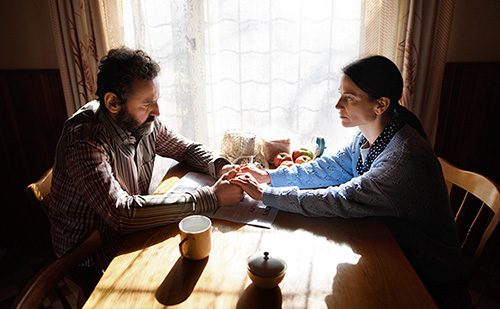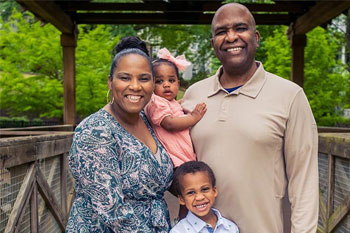
National Infertility Week 2025
This year, National Infertility Awareness Week begins on Sunday, April 20, and ends on Saturday, April 26. Let’s leverage this week to discover our voice, discuss the challenges confronting this community, and ensure ongoing support for those in greatest need. Anyone can encounter difficulties in starting a family. According to the CDC, 1 in 4 women in the U.S. have difficulty getting pregnant or carrying a pregnancy to term.
Even in these modern times, infertility may feel as though it comes with a stigma, shame, or embarrassment. Infertility is often an experience people keep very private. They may tell only a few close friends they are struggling to add a child to their family. Infertility can affect people of any age, of any racial background, and beyond.
Is It Time to Move from Fertility Treatments to Adoption?
Many times, couples feel isolated when they struggle to build a family biologically. Actually, Lifetime’s consultants frequently discuss with couples when it is the right time to move from pursuing pregnancy to adoption to build their families. Each family is unique, and when it is the right time for one partner, it may not yet be for the other.
Lifetime has been successfully helping families grow since 1986. In that time, we’ve seen parents experience common signs that let them know it’s time to pursue adoption. These three signs may indicate it’s time to move from fertility treatments to adoption:
- You are ready to be a parent, with or without experiencing the pregnancy.
There is a difference between wanting to experience pregnancy and wanting to be a mother or father. While those things typically go hand-in-hand with adoption, they don’t have to.
Usually, we see the wife arrive first at this place because she is weary of being poked and prodded in an attempt to become pregnant or sustain a pregnancy. If a woman truly desires to experience pregnancy, adoption isn’t going to help her fulfill that dream. When she prioritizes being called “Mommy” over being pregnant, it’s a sign that it’s time to move on. - Fertility treatments are negatively affecting your relationship.
A journey that begins hopeful but is not as you expected can take a toll on your relationship. If one partner has a specific diagnosis, they may start to feel responsible for their body’s failure, leading to more disappointment and even shame.
Sometimes, resentment begins to build even in the strongest of relationships. While this cycle is something that you go through together, the feelings of failure may be uniquely your own, and the two of you might not feel the loss and disappointment equally. - Fertility treatments are negatively affecting your emotional health.
Attempting pregnancy is usually on a 28-day cycle, one that often ends in failure. Hope builds up over the month, in which each temperature charted, injection received, and pill taken, only to be crushed in an instant when it becomes obvious that pregnancy didn’t occur and it’s time to start over. This cycle of hope and failure is usually more difficult for a woman because she feels like her body is failing, even if she isn’t the one with the infertility diagnosis.
It is not uncommon for women continuing through this journey to begin to retreat from ordinary life and become depressed. Because of the physical (and mental!) effects of fertility treatments, you can start to feel like your body is not your own and that it’s broken. If this is leading to a less joyful life, it may be time to end the treatments.
Mark and Megan’s Story
Mark and Megan came to us reluctantly, asking about adoption. They had good questions, but it was clear they were not on the same page when it came to beginning the adoption process. Mark was the only male in a strong Italian family and wanted a biological child, preferably a son, to carry on his name and his genes. He, however, had male factor infertility.
Megan was exhausted. They had started fertility treatments a year ago and had made an agreement that they would look to adoption after a year. She shared that she no longer wanted to pursue the IUI treatments they had been doing now for twelve cycles.
From Infertility to Adoption
They were not in agreement when it came to moving from fertility treatments to adoption. Mark wanted to continue, but at this point, he had an unwilling partner. It was clear this was wearing on them both and that Megan was ready to be a mom right now.
During our consultation, we explained how adoption isn’t an all-or-nothing decision. Mark and Megan could continue to try naturally for pregnancy while pursuing adoption. Other agencies had let them know that a pregnancy would end their adoption hopes, but we believe that God builds families in many ways.
This was something that made sense, and they quickly were able to resolve their challenges and move forward from fertility treatments to adoption. They agreed to continue to try for a pregnancy without the IUI treatments but start their journey to adopt.
About 14 months later, a birth mother chose them to become parents to her little boy through a beautiful open adoption. Mark shared with us that he no longer felt the strong drive or desire for a biological child. This was the son he had longed for.
Showing Your Support During National Infertility Awareness Week
You can take action for this year’s National Infertility Awareness Week by posting on social media sites, wearing orange, and tagging your reps. Post about your experience with infertility using the tag #NIAW2025. Find your reps’ pages, follow, and tag them when you post about NIAW.
National Infertility Awareness Week was founded in 1989 by RESOLVE: The National Infertility Association. The week is meant to unite Americans who want to remove the barriers and stigmas standing in the way of building their family.
If you’re struggling to decide whether you’re ready to pursue adoption after fertility treatments, our caring consulants at Lifetime are happy to help you. Call Lifetime Adoption at (727) 493-0933 or contact us here for a free adoption consultation.
To begin your adoption, the first step is to share a little about yourselves by completing Lifetime’s free online application to adopt. We’re happy to help you move forward with the adoption process when you’re ready.
Editor’s Note: This article was originally published on April 21, 2021, and has since been updated.
As Vice President of Lifetime Adoption, Heather Featherston holds an MBA and is passionate about working with those facing adoption, pregnancy, and parenting issues. Heather has conducted training for birth parent advocates, spoken to professional groups, and has appeared on television and radio to discuss the multiple aspects of adoption. She has provided one-on-one support to women and hopeful adoptive parents working through adoption decisions.
Since 2002, she has been helping pregnant women and others in crisis to learn more about adoption. Heather also trains and speaks nationwide to pregnancy clinics to effectively meet the needs of women who want to explore adoption for their child. Today, she continues to address the concerns women have about adoption and supports the needs of women who choose adoption for their child.
As a published author of the book Called to Adoption, Featherston loves to see God’s hand at work every day as she helps children and families come together through adoption.

 A journey that begins hopeful but is not as you expected can take a toll on your relationship. If one partner has a specific diagnosis, they may start to feel responsible for their body’s failure, leading to more disappointment and even shame.
A journey that begins hopeful but is not as you expected can take a toll on your relationship. If one partner has a specific diagnosis, they may start to feel responsible for their body’s failure, leading to more disappointment and even shame.




0 Comments